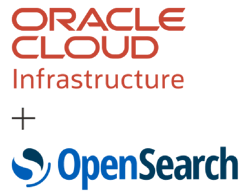Enterprise Seach
Explore and analyse data differently using the power of search.
Enterprise Search
Enterprise search is software technology for searching data sources internal to a company, typically intranet and database content. The search is generally offered only to users internal to the company. Enterprise search can be contrasted with web search which applies search technology to documents on the open web, and desktop search, which applies search technology to the content on a single computer.
Enterprise search systems index data and documents from a variety of sources such as: file shares, intranets, content management systems, email and databases. Many enterprise search systems integrate structured and unstructured data in their content repositories. Enterprise search systems also use access controls to enforce a security policy on their users.
Enterprise search can be seen as a type of vertical search of an enterprise. TEAM IM supports Elastic Search, Open Search and Syl Search.


Syl Search
Syl Search is a powerful enterprise search engine with a responsive web user interface and unique semantic search features. Syl Search can recognise the meaning of your search terms, and search results can include related concepts and contexts that are more relevant to an organisation. Syl Search makes it easier to find vital information quickly.
Syl Search allows you to search in your own custom language terms, industry jargon and acronyms, and even te reo Māori, providing far more relevant and accurate search results than our competitors.
Syl Search also has federated search which enables search across multiple clouds and on-premise content.

Syl Open Search
Syl OpenSearch support is a new feature within Syl that provides a deep level of integration between the Syl System and OpenSearch running as a PAAS in cloud environments such as TEAM Cloud (Oracle OCI) and Amazon AWS. This feature is intended to give clients an option to continue to use the Syl Systems existing content indexing system or OpenSearch as a content indexing system.
In both cases Syl Search will utilise either a Syl index to query for search results or an OpenSearch index to query for search results, depending on configuration. For the user this is seamless, which is to say that they still interact with Syl Search and see search results regardless of which index is used.

Elastic Search
Elasticsearch is a distributed, open-source search and analytics engine built on Apache Lucene and developed in Java. It started as a scalable version of the Lucene open-source search framework then added the ability to horizontally scale Lucene indices. Elasticsearch allows you to store, search, and analyse huge volumes of data quickly and in near real-time and give back answers in milliseconds. It’s able to achieve fast search responses because instead of searching the text directly, it searches an index. It uses a structure based on documents instead of tables and schemas and comes with extensive REST APIs for storing and searching the data. At its core, you can think of Elasticsearch as a server that can process JSON requests and give you back JSON data.

Open Search
Open Search in OCI is a distributed, community-driven, Apache 2.0-licensed, 100% open-source search and analytics suite used for a broad set of use cases like real-time application monitoring, log analytics, and website search. OpenSearch on TEAM Cloud provides a highly scalable system for providing fast access and response to large volumes of data with an integrated visualisation tool, OpenSearch Dashboards, that makes it easy for users to explore their data. OpenSearch is powered by the Apache Lucene search library, and it supports a number of search and analytics capabilities such as k-nearest neighbors (KNN) search, SQL, Anomaly Detection, Machine Learning Commons, Trace Analytics, full-text search, and more.

TEAM Cloud supports Open Search, Syl Search and Syla Open Search. Syl Open Search provides a federated search across file shares, comtent management systems, databases and emails across multiple clouds and on-premise.
It also has AI and ML built in as standard.

